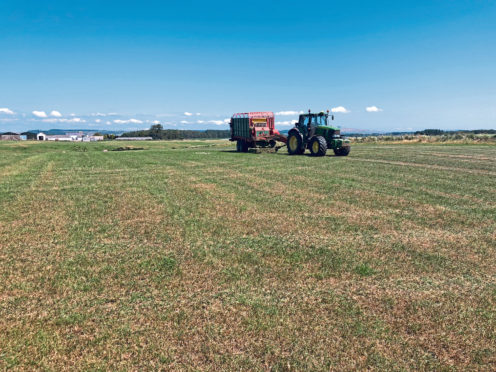The hot, dry weather is causing concern for cereals and potato producers in Scotland, but in parts of central Europe and Scandinavia farmers are warning of the catastrophic consequences of a severe drought.
EU farmers’ unions Copa and Cogeca point to Estonia, Latvia, Lithuania, Denmark, Sweden, Poland, Germany and Finland as the hardest hit by drought and forecast a drop of 6%, or two million tonnes, in the cereals and oilseeds harvest compared to 2017.
The unions have requested an advance payment from the EU Commission to help farmers suffering the most severe impacts of the weather stay afloat, and urged member states to implement the tools which deal with climatic risks.
Meanwhile NFU Scotland president Andrew McCornick said the dry spell had been a welcome relief to farmers after a difficult 12 months of weather.
“The quality of the winter fodder made to date is likely to have been tremendous and early reports on the soft-fruit harvest suggests exceptional quality, the hot weather fuelling excellent demand and packhouses at full throttle,” he said.
“I am always wary when discussing the downside of warm weather in Scotland, as it is such a rarity. That being said, many parts will be hoping for a spot of rain.
“A little bit of moisture would be a great help to grass growth and for those who are relying on a second cut of silage, as well as our arable members who will be looking for some wet weather to swell grain as we quickly approach harvest time.”
He urged cereals and livestock sectors to work together in the face of possible straw shortages later in the year.
“For livestock producers it’s about being prepared and speaking to the arable men and persuading them to keep the choppers off their combines, which they’ll do if the price is right.”
He said: “With a bit of communication, both livestock and arable farmers should see a positive outcome.”
He added: “This is a critical time for farmers and crofters as a lot of livestock members will need to plan how they use their grass very carefully over the coming months. Some will need to sacrifice silage for grazing, and vice versa. Some will also be considering the cost benefit of sending sheep and cattle out for wintering.”
